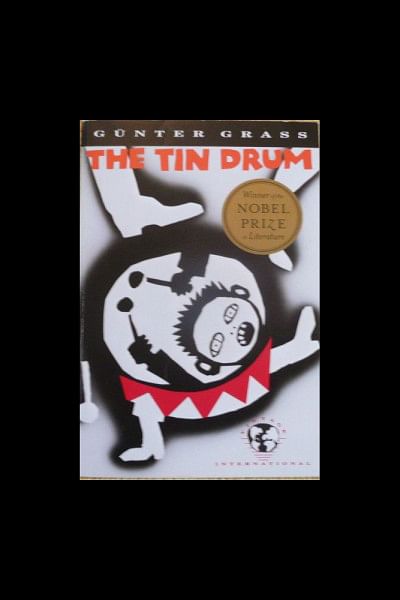Tin Drum - A Novel on War

A600 page engaging novel may badly wear you out, but the marks it leaves in your mind are profound enough to take all the pains of reading it. The Tin Drum is indeed a difficult novel, at least I found it so; but it is also a fascinating one. Producing great literature in a time of massive turbulence is a challenging task. Most of the time the writings during a war or massive political change appeal to the current age; eventually they decay with the passage of time. Writers are also social like any other professionals and the huge emotional outpourings quite expectedly undermine the quality of writing during social or political upheavals. Novels written on the Second World War are on the whole, not up to the mark, only with a few exceptions. The Tin Drum surely belongs to the 'exception' category.
It is of my personal understanding that a piece of fiction gets immortal only when it deals with the humanity in its entirety, not in segregation considering a specific time or place. Timeless classics become those which reach beyond their time and place and have that essential element in themselves with the strength of which they continue appealing to humanity for a long time. Another reflection of mine regarding fiction is that when writing of a particular event, a novelist should always center the event on background, portray in general the everyday human actions, and only implicate the effects the event has on the lives of regular humans. I believe only thus, not by directly describing the event, a novel can truly show the picture of the event.
Hence, I have every reason to consider The Tin Drum as the iconic Second World War novel. It does not have any war scene and any description of the advancements of the war; still, it is a novel concerning only one thing: the war. The novelist, Gunter Grass, concerns himself only with a hazy autobiography of Oskar, a forever 3 year child, who willingly stopped growing at the age of three and henceforth took drumming a tin drum his only real passion and motive in life, though there have been several phases in his life when he got engaged in other human activities forsaking temporarily his drumming. Oskar tells about his life beginning from the birth process of his mother. He is not at all a dependable teller, as many of his accounts are exclusively fantastic. Here I should mention that though I have experienced quite a few novels adopting the technique what we generally call magic realism, the particularly eccentric and, to much extent, intricate elements of myths/ fantasies used in the novel, have been simultaneously esoteric and ecstatic for me. A fair amount of imagination is required to grasp the frequent eccentric mythical elements of the novel, but the pleasure the exercise results in is astounding.
So, the novel is all about Oskar, but it is all about war too. Because, war finds its getaway every now and then in the lives of Oskar and the people around him. I strongly believe a novel on war should show us the futility, absurdity, and evil of war. But this cannot be done unless you, the writer, set yourself at the standpoint of a regular person. Then you don't have to find war; war always finds the hole to affect you and your regular life. Gunter Grass has undoubtedly proved himself to be a master by capturing the war in its true horrific deimension. He has done so not only through setting himself at a civilian level, but also through mixing up seemingly absurd fantasies with plain realities. His level of eccentricity should not be overemphasized. Because he wrote a war novel; and what more eccentric is there than to kill millions over something which in hindsight seems only hilarious!
Reviewed by: Sujan Chakraborty Surjo, The reviewer is Assistant Director, Bangladesh Bank.

 For all latest news, follow The Daily Star's Google News channel.
For all latest news, follow The Daily Star's Google News channel. 



Comments